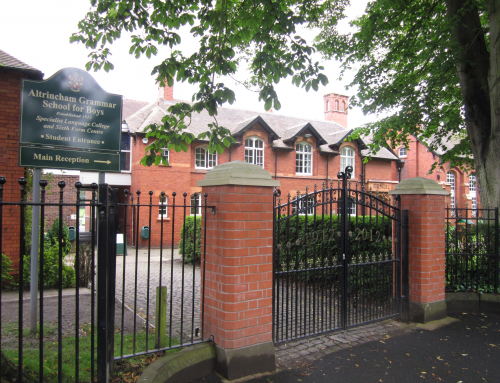 A recent 11-year Australian study has found that children attending comprehensive schools are just as likely to go on to higher education and secure work as children attending selective schools. The findings published in the British Journal of Educational Studies suggest grammar schools bring little to no benefit, finding that there were no obvious differences in outcomes in early adult life for those who attended academically selective schools. Selective schools had a higher proportion of academically high-achieving pupils but by age 25 all educational and employment differences were statistically insignificant.
A recent 11-year Australian study has found that children attending comprehensive schools are just as likely to go on to higher education and secure work as children attending selective schools. The findings published in the British Journal of Educational Studies suggest grammar schools bring little to no benefit, finding that there were no obvious differences in outcomes in early adult life for those who attended academically selective schools. Selective schools had a higher proportion of academically high-achieving pupils but by age 25 all educational and employment differences were statistically insignificant.
The study tracked 3,000 pupils from selective schools in Australia over an 11-year period starting in 2009, when participants were 15 years old. Much like the UK’s grammar schools students in Australia’s selective schools are admitted based on their performance in a standardised entrance exam, resulting in a high concentration of academically high-achieving pupils. The researchers used a statistical technique called “nearest-neighbour matching” to compare selective school students to their non-selective peers with similar characteristics such as gender, socioeconomic status and reading and maths scores in Year 9. They then they compared their outcomes as adults. It found that by ages 19 and 25 the educational and employment outcomes of students from selective and non-selective schools were remarkably similar.
At age 19, 81 percent of selective school students secured a job or university place compared to 77.6 percent of non-selective school students. However, this difference vanished when adjusting for key characteristics such as socioeconomic background, gender, and geographical location. By age 25, all differences in outcomes between selective and non-selective school pupils were statistically insignificant, except for general life satisfaction. Attending a selective school only marginally increased a pupil’s life satisfaction score by 0.19 points. Pupils from non-selective schools were equally likely to pursue university education or secure employment as their selective school peers by this age.
The authors said: “Studies show that parents wish to enrol their children into selective schools because they believe it will increase the chances of their children getting into a prestigious university, and securing a well-paid and high-status job.” They suggest more research is needed to determine whether selective schools offer any benefit to academically able pupils, pointing out that selectivity should be scaled back within the education system if value cannot be proved.
The research paper says: “Similar to grammar schools in the United Kingdom, Australian fully academically selective schools are part of the government sector and select all their students via a standardised and high stakes entrance exam. State governments purport that selective schools ‘make a difference in supporting the development of academic talent and the wellbeing of high potential and gifted students’ … Yet there are no published studies that critically track and compare longer-term outcomes of students who attend selective schools compared to non-selective schools into adulthood.”
“These very modest findings indicate that attending an academically selective school does not appear to pay off in large benefits for individuals,” says Andrew Wade, co-author of the study. “We argue that academically selective schools in the government sector therefore contradicts the principles of inclusive and equitable education which underpin Australia’s school system.”
According to the authors, the findings suggest that more research is needed to determine whether selective schools offer any benefit to academically able students.
“Rather than tweak some aspects of the enrolment processes, we see greater value in conducting a thorough and critical examination of fully and partially selective schools, and scaling back selectivity if the supposed benefits are not found,” says Huo.
This research, just like the major study by Prof Stephen Gorard, shows that selective schools damage social cohesion and creates stress and upset for children, without giving any benefits in terms of results and outcomes.





